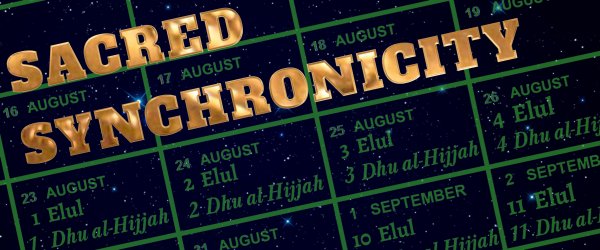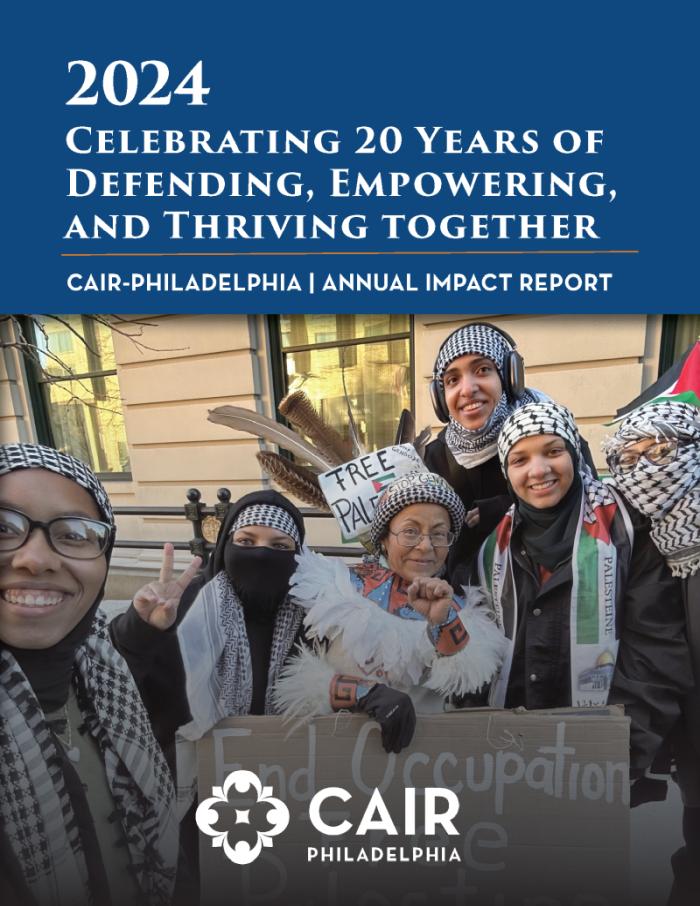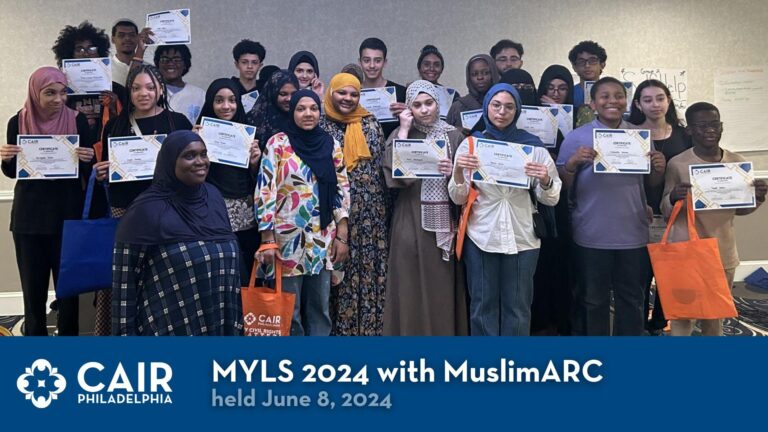by Jacob Bender, CAIR-Philadelphia Executive Director
This past Wednesday marked the beginning of Dhu al-Hijjah, the twelfth and final month of the Islamic calendar. The first ten days of Dhu al-Hijjah are a time imbued with great holiness. The rituals of the hajj are performed during the eighth, ninth, and tenth day of the month, culminating in Eid al-Adha, the “Festival of the Sacrifice,” which begins on the tenth day. The Eid is observed by Muslims on the hajj and around the world in commemoration of Ibrahim’s willingness to sacrifice his son Ismail for God.

According to Islamic tradition, the first ten days of Dhu al-Hijjah are the most blessed days in which to do good deeds.
Ibn Abbas narrated: The Prophet (pbuh) said, “No good deeds done on other days are superior to those done on these first ten days of Dhu al-Hijjah.”
Believers are encouraged to fast, perform extra prayers, and give even more than their usual contributions to sadaqah (charity).
Al-Bukhari reported: The Prophet (pbuh) said, “There are no days in which righteous deeds are more beloved to Allah than these ten days of Dhu al-Hijjah.”

Last Wednesday, in a calendric coincidence laden with meaning, was also the first day of the month of Elul on the Judaic calendar. Elul is a time of repentance and spiritual preparation for the Jewish High Holy Days of Rosh Hashanah and Yom Kippur, The Day of Atonement, a time to search one’s heart and make amends to those we have wronged during the preceding year, asking for forgiveness. According to Jewish tradition, God cannot forgive us for sins committed against another person until we have first obtained forgiveness from the person we have wronged. (Try it; it is much harder than it seems.)
There are several rituals performed in Elul, among them: listening to the blowing of the shofar (a ram’s horn), which according to Rabbi Moses Maimonides (Musa ibn Maymun), is a wake-up call to we sleepers, designed to rouse us from our moral and ethical complacency.

Next, special slikhot, prayers of forgiveness, are added to the early morning prayer service, including the repeated recitation of the Shelosh-‘Esreh Middot HaRakhamim, the “Thirteen Divine Attributes of God’s Mercy”:
- Compassion before a person sins;
- Compassion after a person has sinned;
- Mighty in compassion to give all creatures according to their need;
- Merciful, that humankind may not be distressed; and
- Gracious if humankind is in distress;
- Slow to anger; and
- Abundant in kindness; and
- Truth;
- Showing kindness unto thousands;
- Forgiving iniquity; and
- Transgression; and
- Sin;
- Pardoning the penitent.
Islamic tradition holds that there are 99 names of God (Asma al-Husna, “The Beautiful Names of God”). Many of these relate to mercy, and have almost the same meaning as in the Shelosh-‘Esreh Middot HaRakhamim; for example, numbers 2, 3, 15, 35, etc.

Finally, Jewish tradition, like Islam, holds that it is especially appropriate to increase the amount tzeddukah (charity) given during the month of Elul.
The inherent similarity in the above descriptions of Jewish and Islamic traditions is readily apparent for all to see: the parallel language, the commitment to justice, the obligatory giving of charity, the love of mercy. This is hardly surprising as Jews lived for centuries in the Islamic world, and during the Middle Ages over 90% of the world’s Jews lived in Muslim-majority lands. And for over 800 years, Arabic was the language of the Jewish People, utilized by Jews for their philosophy, personal and business correspondence, and poetic inspiration. (Below, Hebrew Bible translated into Arabic, Egypt, 900 CE.)

Yet sadly, we live in a turbulent time when the ignorant still peddle a false theory labeled “the clash of civilizations,” when the bigoted buy advertising space on public trains and buses to spread hatred of Islam, and when demagogues stoke wide-spread fear of Muslims by ranting on and on about the danger of a so-called [and non-existent] “shariazation” of America.
Judaic and Islamic traditions point to a holistic understanding of the human predicament, telling us to find balance between the personal and the political; we cannot respond effectively to the demons spreading hate in our world if we do not also respond to the demons within us (thus, the true understanding of the [inner] jihad).
So awake! Maimonides tells us, and let the piercing sound of the ram’s horn rouse us from our ethical and moral slumber, this national nightmare in which we currently find ourselves.
Now is the time to ask ourselves, what are we doing to save our beloved country from the approaching disasters: the next Charlottesville ‘round the corner; the next presidential defense of white supremacists waiting to be tweeted, tens of millions of people in danger of losing their health insurance.
Now is the time to ask ourselves, what we are doing to save our world from disaster; the rising seas, the savage hurricanes, the polluted air. (Below, hurricane damage in Texas on Saturday.)

And the ram’s horn is heard! [News item, Aug 24: A prominent coalition of rabbis has pulled out of an annual call with the US president over his remarks about violence in Charlottesville, Virginia. The four groups said Donald Trump’s statements were “so lacking in moral leadership and empathy” that they had no choice but to cancel the call.]
And thousands take to the streets.
In Boston:

In Philadelphia:

In San Francisco:

Until such time as “justice shall run down as waters, and righteousness as a mighty stream.” (Prophet Amos 5:24)







